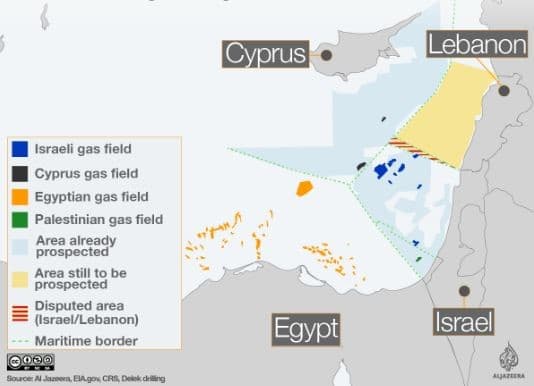The Biggest Winners In The Mediterranean Energy War

Former Vice-President of the United States Dick Cheney once said: “the good lord didn’t see fit to put oil and gas only where there are democratically elected states… Occasionally we have to operate in places where, all considered, one would not normally choose to go. But we go where the business is.” Europe is surrounded by states with abundant energy resources, but supply from these countries is not always as reliable. Russia, for example, is regularly accused of using energy as a weapon. However, major discoveries of gas in the Eastern Mediterranean could mitigate dependence on Russian gas.
The discovery of a gas field named Tamar near the coast of Israel in 2009 set off a wave of investments in the energy sector. After 9 years, companies are flocking to the region after other discoveries in the territorial waters of Israel, Cyprus, and Egypt. Ever larger finds in the Mediterranean Sea’s Levant Basin such as the Leviathan gas field in 2010 and Zohr in 2015, have the potential to transform the strategic importance of the region.
(Click to enlarge)
Turkey’s energy hub ambitions
Few states in the world are geographically so well positioned as Turkey. The country controls Russia’s only warm water port in the Black Sea and serves as a bridge between east and west. Therefore, during the Cold War Ankara was an indispensable member of NATO. More recently, Turkey has the ambition to become an energy hub for Middle Eastern and Caspian energy. Ankara has had mixed successes in attracting investors and maintaining political stability.
After Israel’s significant discoveries, a U.S. backed initiative presented Turkey as an energy hub. Although a land pipeline is the cheapest option to transport gas from the Mediterranean to Europe, political developments have stalled construction.
…click on the above link to read the rest of the article…
